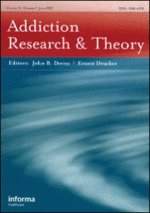
Faith-based treatment programs are a viable treatment option for many individuals with substance use disorders; however, the psychological mechanisms that explain the relationship between spirituality and a recovery from substance use disorders have not been established.
The Spirituality, Forgiveness, and Purpose (SFP) model of recovery proposes that forgiveness and purpose in life may mediate the spirituality–recovery relationship.
As a preliminary step in exploring this theory, a cross-sectional investigation of 277 clients of the Australian Salvation Army Rehabilitation Service Centres was performed.
A multiple regression found that forgiveness of others, forgiveness of self, receiving forgiveness from others, and receiving forgiveness from God predicted resentment.
Furthermore, multiple mediation analyses found that forgiveness of self and receiving forgiveness from others and God mediated the relationship between daily spiritual experiences and purpose and engagement in life.
Request Reprint E-Mail:
Faith-based treatment programs are a viable treatment option for many individuals with substance use disorders; however, the psychological mechanisms that explain the relationship between spirituality and a recovery from substance use disorders have not been established. The Spirituality, Forgiveness, and Purpose (SFP) model of recovery proposes that forgiveness and purpose in life may mediate the spirituality–recovery relationship. As a preliminary step in exploring this theory, a cross-sectional investigation of 277 clients of the Australian Salvation Army Rehabilitation Service Centres was performed. A multiple regression found that forgiveness of others, forgiveness of self, receiving forgiveness from others, and receiving forgiveness from God predicted resentment. Furthermore, multiple mediation analyses found that forgiveness of self and receiving forgiveness from others and God mediated the relationship between daily spiritual experiences and purpose and engagement in life.
Read More:
http://informahealthcare.com/doi/abs/10.3109/16066359.2011.555022Faith-based treatment programs are a viable treatment option for many individuals with substance use disorders; however, the psychological mechanisms that explain the relationship between spirituality and a recovery from substance use disorders have not been established. The Spirituality, Forgiveness, and Purpose (SFP) model of recovery proposes that forgiveness and purpose in life may mediate the spirituality–recovery relationship. As a preliminary step in exploring this theory, a cross-sectional investigation of 277 clients of the Australian Salvation Army Rehabilitation Service Centres was performed. A multiple regression found that forgiveness of others, forgiveness of self, receiving forgiveness from others, and receiving forgiveness from God predicted resentment. Furthermore, multiple mediation analyses found that forgiveness of self and receiving forgiveness from others and God mediated the relationship between daily spiritual experiences and purpose and engagement in life.
Read More:
http://informahealthcare.com/doi/abs/10.3109/16066359.2011.555022
